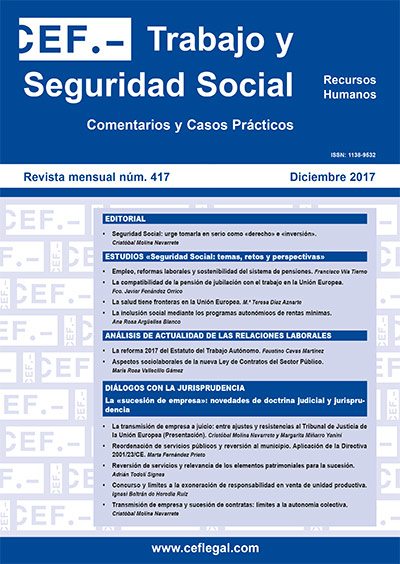Social inclusion through minimum guaranteed income in self-governing communities
DOI:
https://doi.org/10.51302/rtss.2017.1732Keywords:
minimum income, social inclusion, social protectionAbstract
The application of the first regional rules on minimum incomes showed the need to contemplate new situations and phenomena, since the risk of social exclusion no longer affects only those people traditionally considered more vulnerable, but has become worryingly common, specially because of the deterioration of working conditions caused by the economic and employment crisis. The objective of this study is to determine the current situation of the minimum incomes in our country, carrying out a critical analysis of the enormous diversity of contents that the current dispositions include when regulating the requirements of the recipients of those incomes, the different courses of action and their duration, and the different amounts of the economic benefits. Paying special attention to the exclusion as potential beneficiaries of the foreigners in irregular administrative situation. Considering this diversity, the article propose to set up an integrated system that addresses the phenomenon of poverty and the risk of social exclusion at national level, articulating the regulations and actions of the different public powers.



















